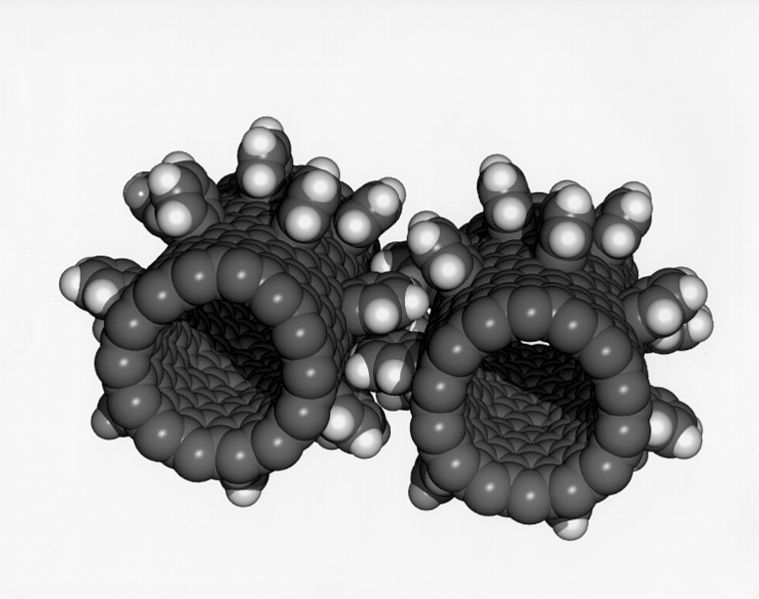Surprising Science
All Stories
When we are confronted with data that contradicts our world view, our brains battle against the information just as they would an attacking predator. Can neuroscience save us?
The sound of children laughing delights listeners more than any other noise, a New Zealand study has found. Psychologist Aaron Jarden says it is because laughter is associated with well-being.
A leading neuroscientist calls into question the concept of volition and the foundations of our legal system—he proposes a new way forward for law and order.
A new antiviral drug that recently won federal approval to treat hepatitis C can effectively cure most patients of the infectious disease, which has been notoriously difficult to treat.
There is accumulating evidence that cellphones that operate on GSM networks emit significantly more radiation than do cellphones operating on CDMA networks.
Biomedical gerontologist Aubrey de Grey wants to reverse the aging process, enabling people to lead long, very long, active lives. He believes immortality is within our grasp.
Counting on food with fake fats to help you lose weight? Better count again because a new study with rats shows that low-calorie fat substitutes can actually promote weight gain.
Now that New York’s state Senate has approved gay marriage, how will the health of the LGBT community be affected? Take the good with the bad, says a Columbia Law School professor.
An inexpensive vaccine normally used against tuberculosis has been found to reverse Type 1 diabetes while dietitians in the U.K. have found an extremely low-calorie diet to reverse Type 2.
Researchers at the Massachusetts Institute of Technology say that by allowing nanoparticles to communicate with each other, the delivery of anti-cancer drugs can improve forty fold.
From beating hearts to breathing lungs, livers to fallopian tubes, the list of organs replicated in miniature form using microchip technology is growing, revolutionizing how drugs are tested.
Researchers have developed the first memory prosthetic device—a neural implant that, in rats, restored lost brain function and improved short-term memory retention.
Scientists have found that ocean levels are rising faster than at any point in the past 2000 years and it’s due to global warming. Less land ice and warmer ocean waters will result.
There may be renewed interest in whether we can sense the Earth’s magnetic field after a finding that a light-sensitive protein in our eyes can act as a “compass” in a fly’s eye.
After resupplying the International Space Station, and laden with its trash, the pilot-less Johannes Kepler completed its mission yesterday by burning up over the Pacific.
Cyber attacks against corporations and governments have grabbed the headlines lately but is all the noise just a consequence of new laws that compel the disclosure of such attacks?
Emerging research shows that handwriting increases brain activity, hones fine motor skills, and can predict a child’s academic success in ways that keyboarding can’t.
Why do economic bubbles seem so inevitable? Why don’t we ever learn? And can they be prevented? Jonah Lehrer asks why society resolves itself to the boom and bust cycle.
U.S. scientists say they have developed an on-off memory switch that helped laboratory rats remember a behavior that they had forgotten. The research could benefit those with brain injuries.
Yale psychologist Paul Bloom wonders that if evil is empathy erosion, and empathy erosion is a form of illness, then is evil nothing more than a particularly awful psychological disorder?
Discoveries in recent years suggest that nature knows a few tricks that physicists don’t: Coherent quantum processes may well be ubiquitous in the natural world.
James Verone of Gaston County, North Carolina, purposefully held up a bank for $1 so he could receive medical attention in prison. After losing several jobs, he had no health insurance.
When the power imbalances between men and women are eradicated, say psychologists, women philander as often as men do. That’s because sexual infidelity is related to power, not gender.
Interbreeding between humans and Neanderthals may have given Europeans and Asians resistance to northern diseases that their African ancestors didn’t have.
Games, monitors and robots are among the tools being tested to help aging people live in their homes as long as possible, while lowering risks to health and safety.
A project sponsored by the American government called “Internet in a Suitcase” is being used to help dissidents circumvent restrictions on information exchange in autocratic countries.
When friction makes machines less efficient, we grease the gears, but that macro solution doesn’t work with nanotechnology. Researchers are learning to shake nanomachines instead.
A European space telescope has found 10 previously unknown alien planets, all of which are gaseous like Saturn or Jupiter. They boost the count of extrasolar planets to 565.
Airbus says in 40 years time we’ll be able to take night flights, 30,000 feet in the air, and be able to stargaze thanks to the plane’s nature-inspired transparent fuselage.
Is the sun about to enter a quiet phase in the 11-year solar cycle and what does that mean for our planet? Is there anything in all the talk about another “Little Ice Age”?





























